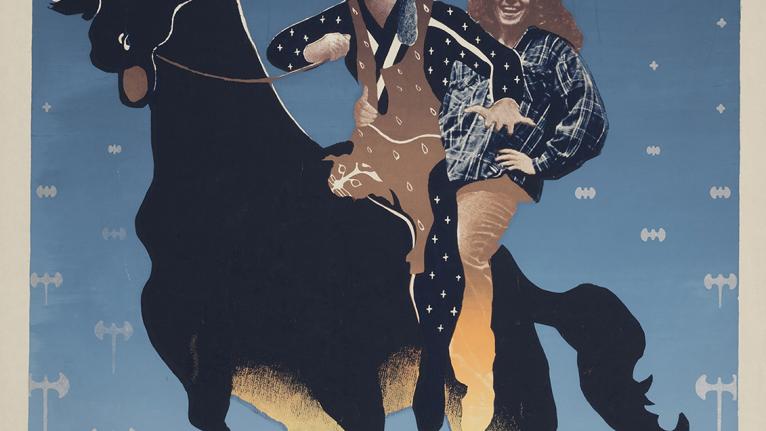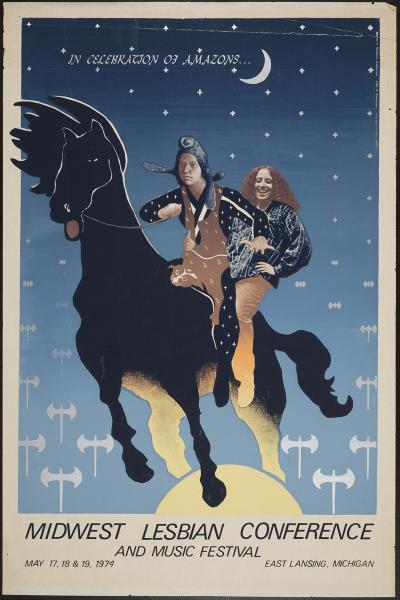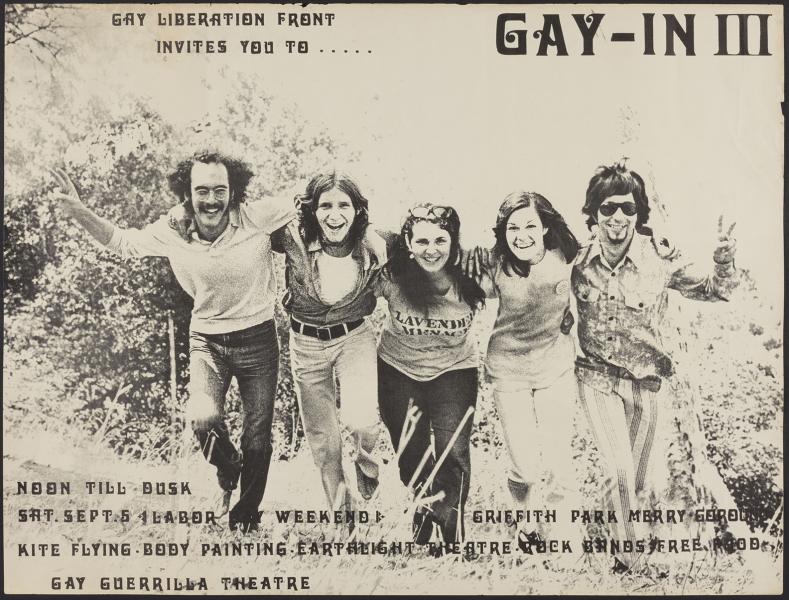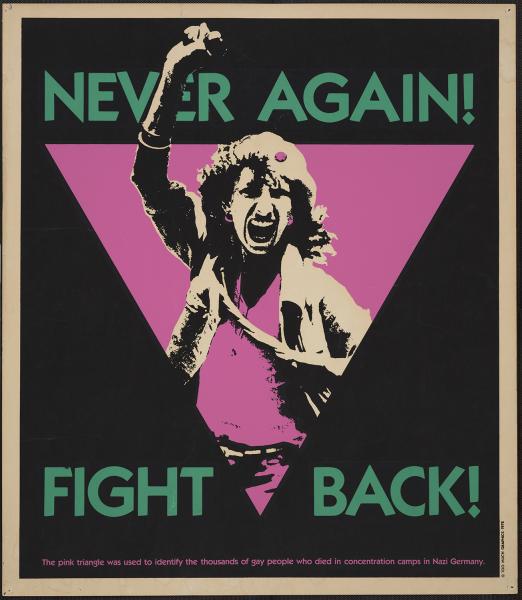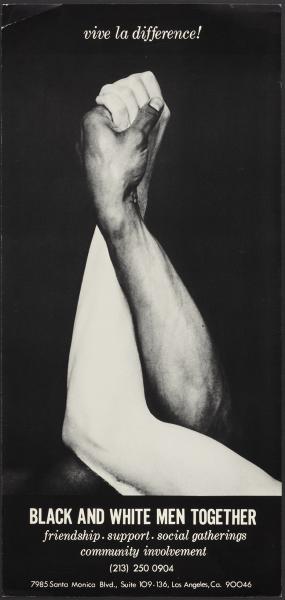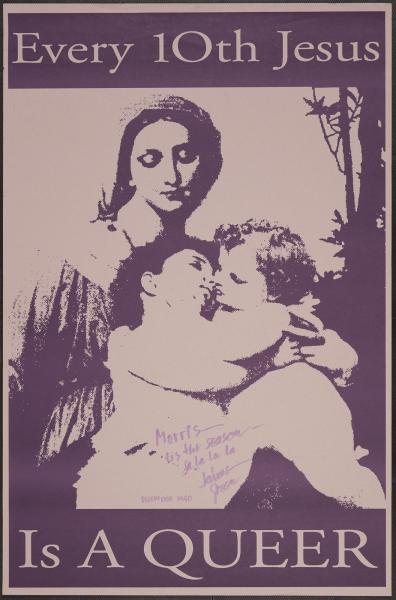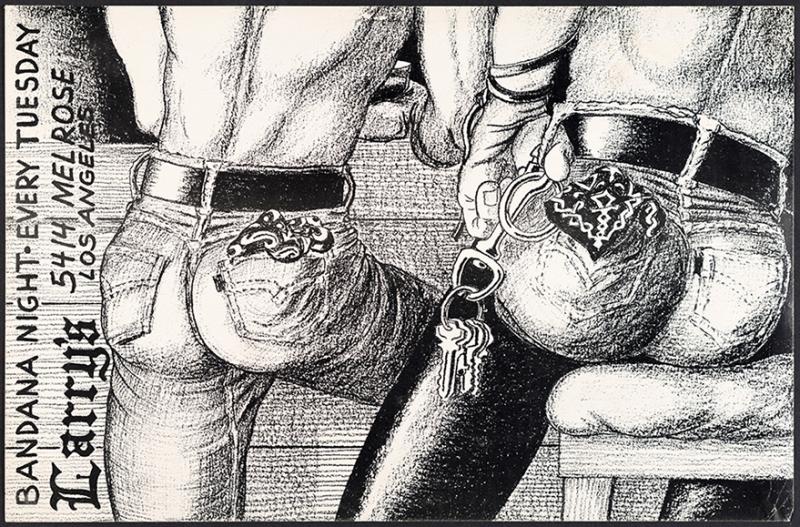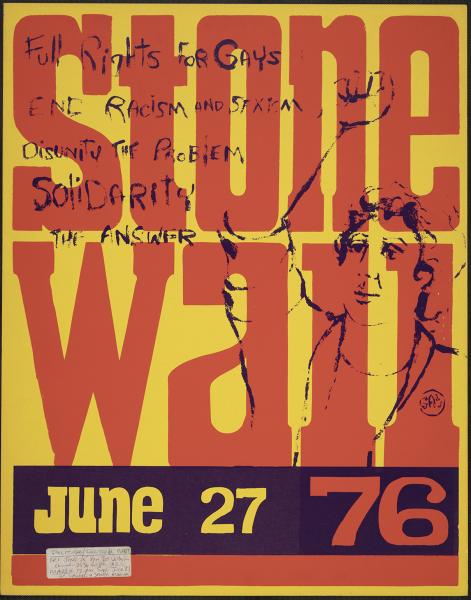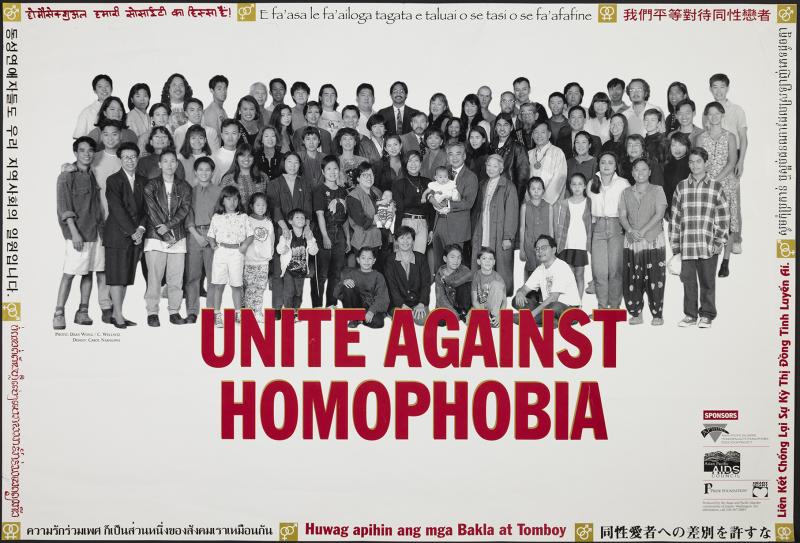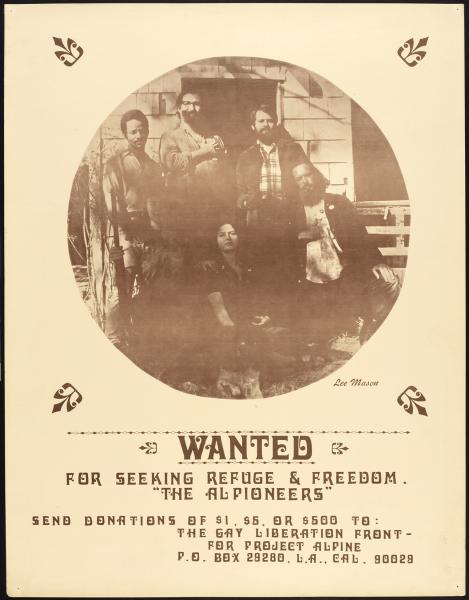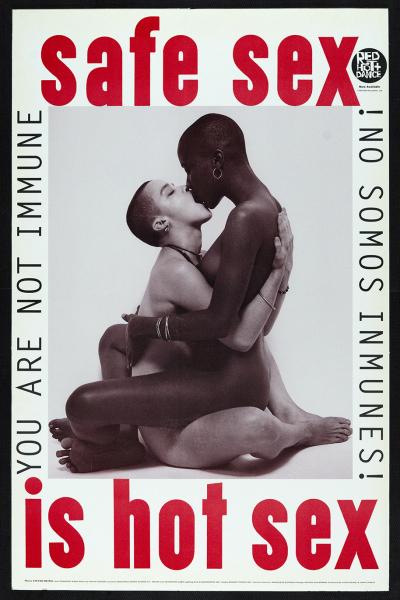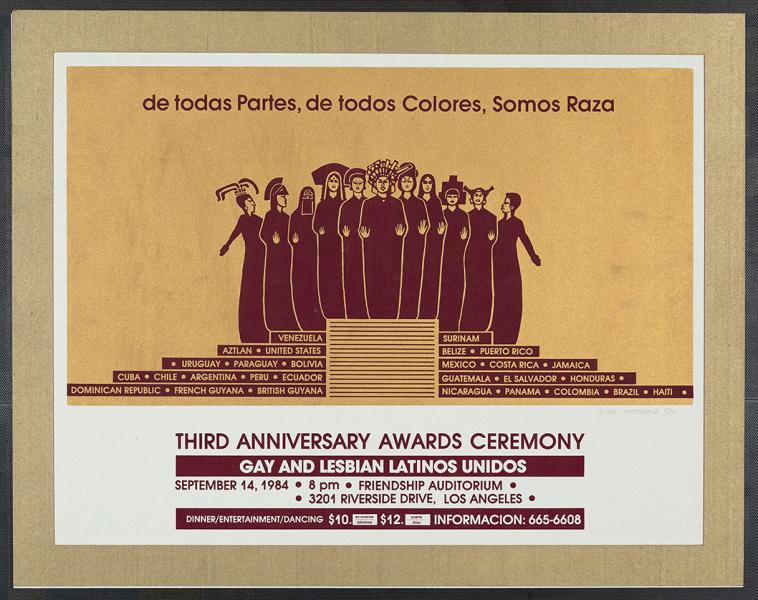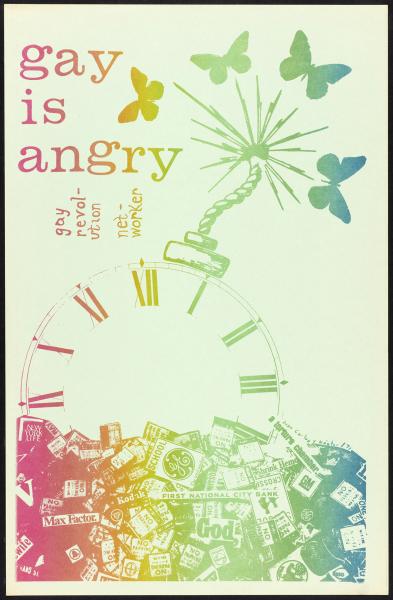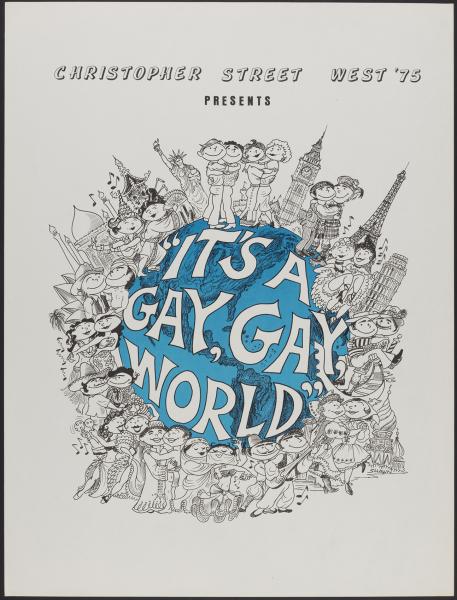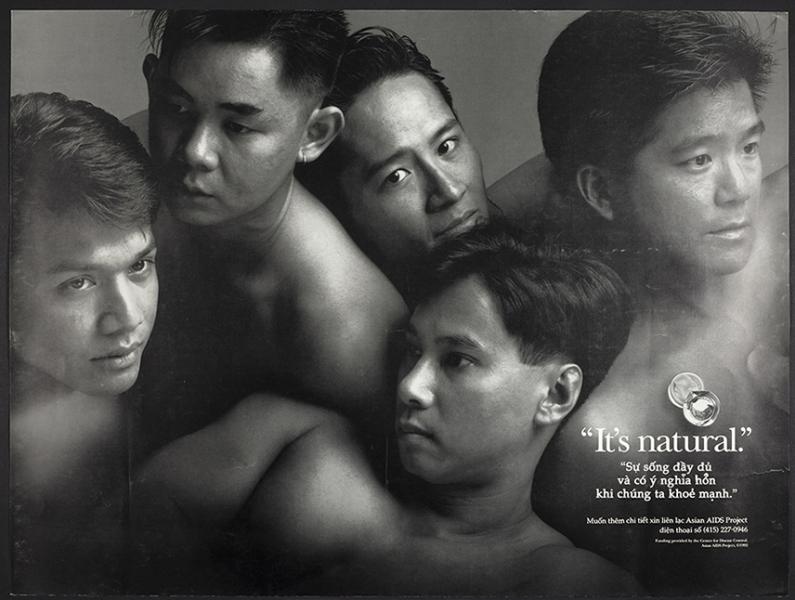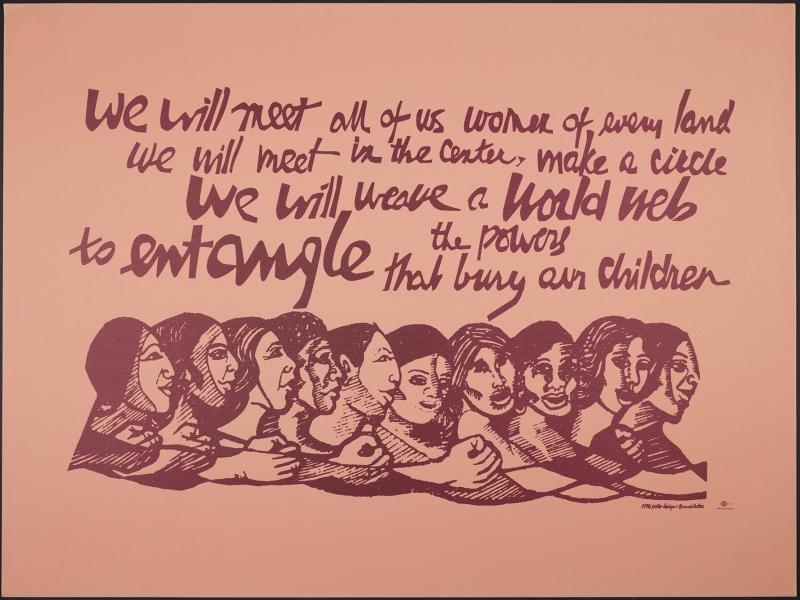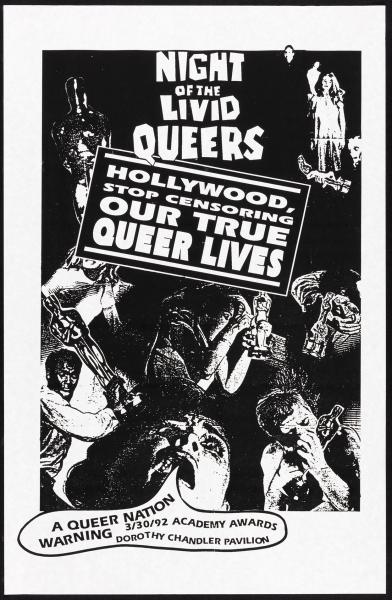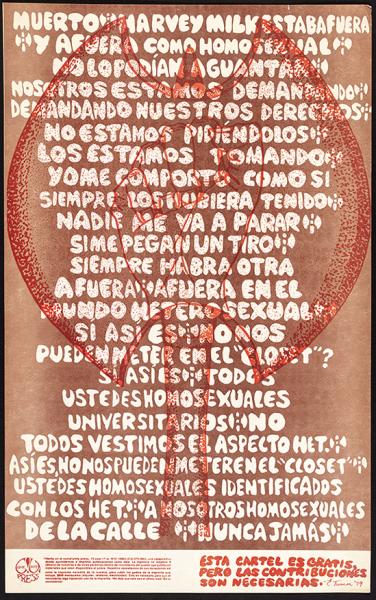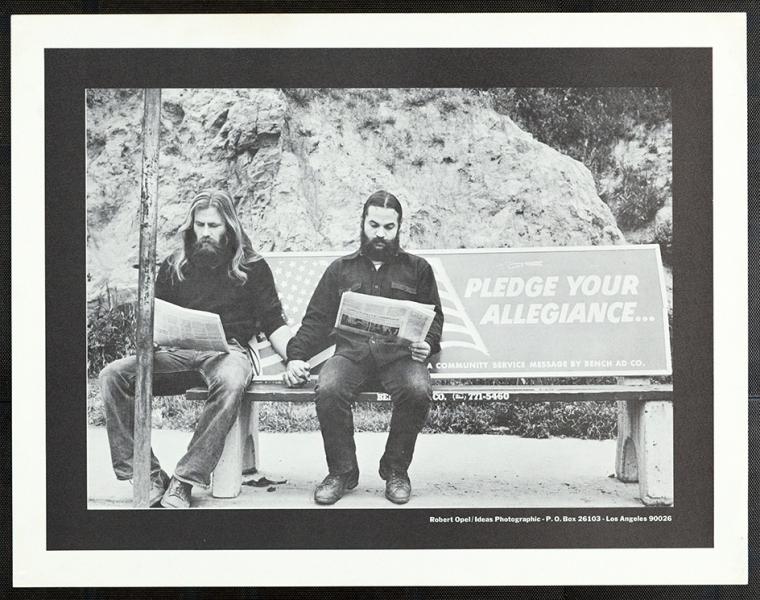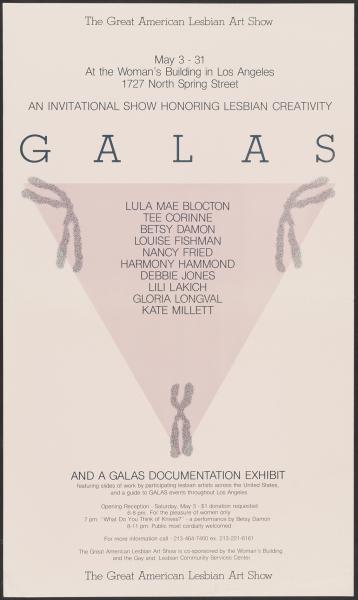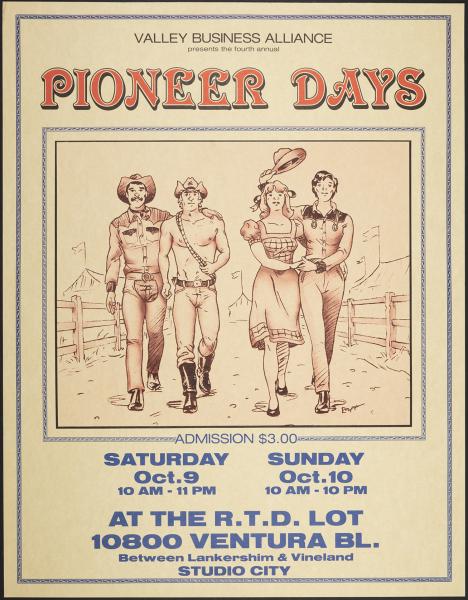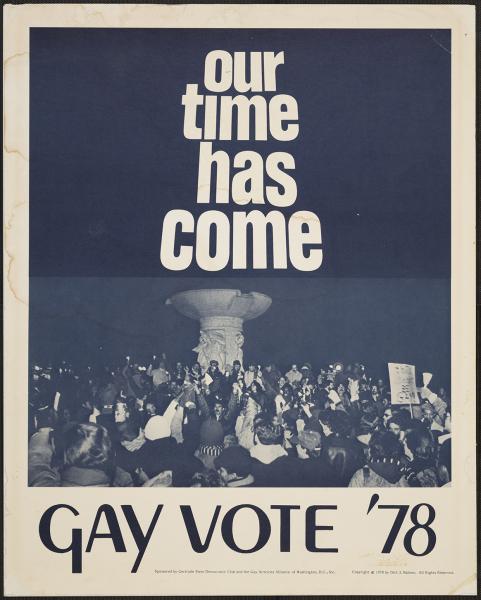July 2020
ONE Archives at the USC Libraries is excited to announce the completion of its project to catalog and digitize a large collection of graphic materials, providing access to 60 years of LGBTQ visual history on the USC Digital Library. Over 4200 posters and demonstration signs are digitized--many are available to the public for the first time. The images span the 1950s-2010s and document a variety of topics, including pride celebrations, AIDS/HIV education, LGBTQ rights, women's movement, nightlife, leather communities, arts, media, and other political movements.
The collection highlights hundreds of LGBTQ pride parade posters from around the world. This summer marks the 50th anniversary of the first pride parade and marches in Los Angeles, San Francisco, Chicago, and New York, all of which were first held in June 1970 to commemorate the one-year anniversary of the Stonewall uprisings. ONE's collection of pride posters reveals the evolution of pride celebrations throughout the United States, with posters from cities including Los Angeles, San Francisco, San Diego, New York, Atlanta, New Orleans, Chicago, Denver, Houston, Baltimore, Miami, and Las Vegas. The collection also includes dozens of pride posters from around the world, including Mexico, Chile, Brazil, England, Sweden, Spain, France, Netherlands, and Germany.
The history of LGBTQ political movements is also traceable through this collection. Some of the earliest posters come from the homophile era (1940s-1969) and document organizations such as the Mattachine Society, the International Committee for Sexual Equality, and the East Coast Homophile Organizations (ECHO); as well as the Annual Reminder demonstrations. Women's movement posters feature women artists and posters from festivals and the International Women's Day. Posters created by the LA Gay Liberation Front document the group's activities, such as "touch-ins" at bars along Santa Monica Blvd.; "gay-ins" held in Griffith Park; and even an attempt in 1970 to create a gay and lesbian separatist community in Alpine County. In addition, hundreds of demonstration signs from ACT UP/Los Angeles reveal the visual strategies used to demand media attention, change public policy, and increase support for people living with HIV and AIDS.
The digital collection also documents LGBTQ social life and cultural organizations, including choruses, drag pageants, rodeos, and festivals. Of particular interest are the hundreds of posters originally displayed in LGBTQ bars, nightclubs, and discos around the world, many of which, sadly, are no longer operating. These posters not only show the social and fashion trends of their time, but they also reveal a network of gay erotic artists and the development of safer sex messaging targeted to LGBTQ communities.
This project was made possible thanks to a generous grant from the Council on Library and Information Resources' (CLIR) Digitizing Hidden Collections program. The materials digitized through this project bring to light the hidden histories of LGBTQ communities and reveal the breadth of contributions in advancing the struggle for LGBTQ equality.
